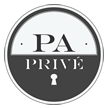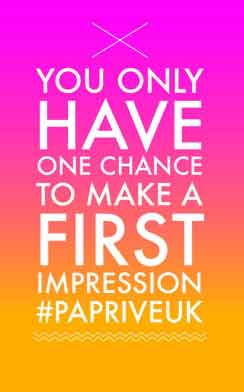I know you’ve heard the sayings, “first impressions are lasting impressions” and “you can never re-do a first impression. Like many old expressions, there’s a lot of truth in these phrases. That’s why you should always do your best to make a positive first impression, especially during every step of your job search.
Click here if you need some Personal Assistant CV/PA CV advice.
Be On Time.
If this first impression is to be made at a scheduled meeting—like a job interview, perhaps—it should go without saying that tardiness will not work in your favour. Do whatever it takes to be on time. Ideally, arrive 5-10 minutes early.
Being on time (or early) is usually interpreted by the interviewer as evidence of your commitment, dependability, and professionalism.
Do Your Research.
Look up the company’s name online, go to their website if they have one, and find crucial information about the company. Reading their mission statement, learning what they do and how they rank among competitors will put you one step above the rest when you come in for the interview.
Be well rested.
Don’t go to the interview tired. You will not demonstrate your best self when responding to the questions.
Dress appropriately.
Your dress says a lot about your judgment, so be sure that you are attired appropriately for the occasion
Observe moderation.
Too much of anything-no matter how good-can be distracting or annoying to the interviewer. So keep these in mind.
- Use minimal makeup, jewelry and perfume.
- Style your hair conservatively.
- Avoid excessive body movement (hand gestures, nods, shrugs).
- Stick to plain and simple polish.
Shake Hands.
Be sure to shake hands as you exchange initial greetings. But what if your interviewer doesn’t offer his hand? The protocol is to extend yours anyway, as a sign of good will.
Ask Smart Questions.
In most cases, you can will given a chance to ask the interviewers a few questions at the end of the interview. Given a chance, ask intelligent and relevant questions that can show your deep interest in the company or organization.
Answer the questions in a confident, firm voice.
Don’t mumble or rush or be too hesitant.
Answers should not be one word or one sentence, but equally should not go on too long.
If you have a lot to say, having made the main points, you could finish by saying: “I could expand upon that, if you wish”.
Be Aware of Your Body Language.
Your body language says a whole lot on a first meeting. If you’re nervous, you’re probably going to look more introverted or disinterested than you actually are. Adopt an “open” posture, that means no crossed arms or crossed legs. Use eye contact consistently throughout the interview and don’t forget to smile.
Avoid negative body language.
An interviewer wants to see how well you react under pressure.
Avoid these signs of nervousness and tension:
- Frequently touching your mouth.
- Faking a cough to think about the answer to a question.
- Gnawing on your lip.
- Tight or forced smiles.
- Swinging your foot or leg.
- Folding or crossing your arms.
- Slouching.
- Avoiding eye contact.
- Picking at invisible bits of lint.
3 questions (examples) to ask in every interview:
- How does the organisation show that it values its workers or employees?
- What do you expect me to do in order to help your company achieve its goals?
- What are the challenges that I might face in the job if hired?
- What is the most successful person doing on the team differently compared to those that are mediocre producers; what’s the secret to that person’s success?
Be Positive.
Your attitude shows through in everything you do. Project a positive attitude, even in the face of criticism or in the case of nervousness. Strive to learn from your meeting and to contribute appropriately, maintaining an upbeat manner and a smile.
Be likeable.
Be punctual, polite, and thank the interviewer at the end. Appear positive and self-confident, maintain eye contact, and show interest. Speak clearly and confidently, don’t go off topic.
Be Yourself.
Making a good impression does not mean acting like a different person.
Don’t try to be something you’re not, just be the best “you” that you can be!
Say thank you.
For their time- before you leave. Let them know you appreciate the opportunity.
Follow Up.
Put a note on your calendar to follow up with a phone call between a couple of days.
Move on, and let it go.
If you don’t hear back after two polite follow-up attempts, move on and focus on other opportunities. You might still actually get a call back; jobs get delayed for a myriad of reasons.
These tips alone may not win you the job—but they can certainly get you a little closer. Got any of your own tips or experiences for making a first impression? Share them with us in the comments area under the article in our website.







